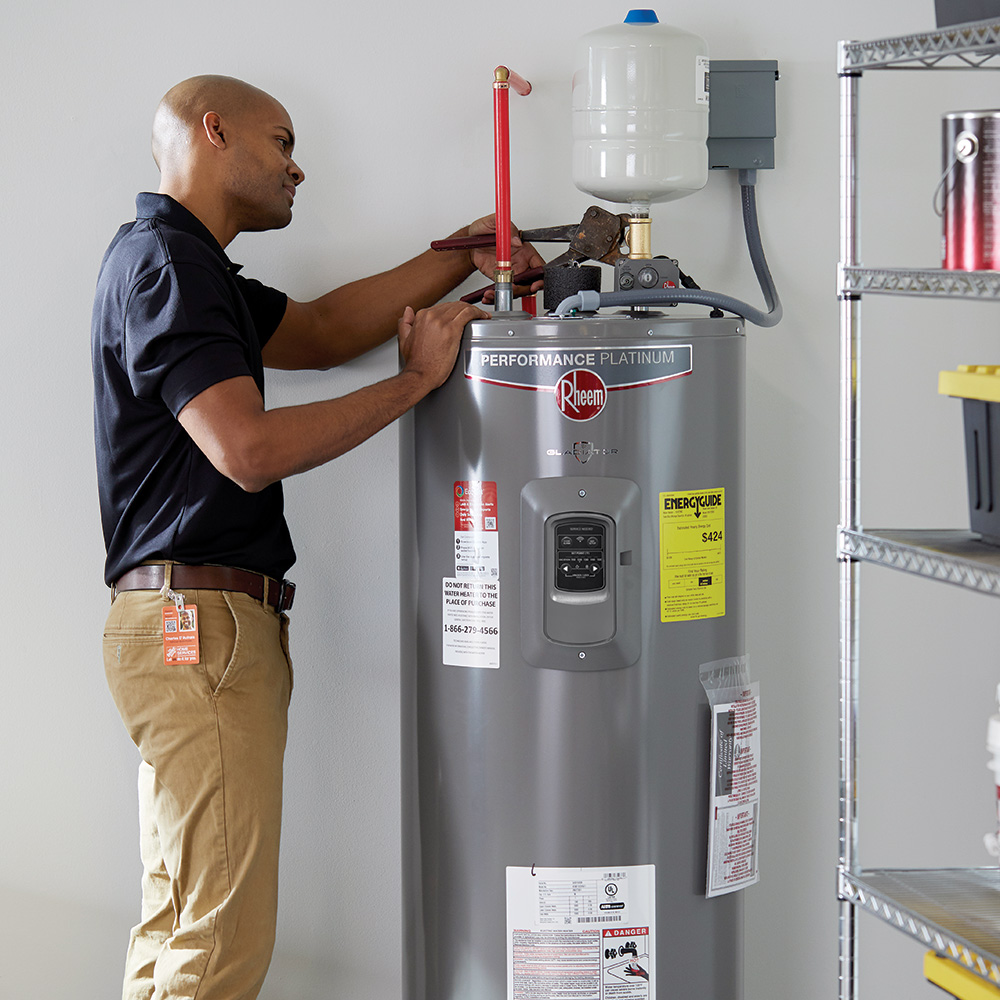The content listed below on the subject of Common Problems with Tank Water Heaters is totally remarkable. Read it for yourself and figure out what you think of it.

Envision beginning your day without your regular warm shower. That already sets a bad tone for the rest of your day.
Every house needs a trustworthy hot water heater, however just a few understand how to manage one. One easy means to maintain your water heater in top form is to look for faults routinely and repair them as soon as they show up.
Bear in mind to shut off your hot water heater prior to sniffing about for faults. These are the hot water heater faults you are more than likely to come across.
Water also hot or also cold
Every hot water heater has a thermostat that determines how warm the water obtains. If the water entering into your home is too hot in spite of establishing a practical optimum temperature level, your thermostat might be malfunctioning.
On the other hand, too cold water may be due to a failed thermostat, a broken circuit, or improper gas circulation. For example, if you utilize a gas hot water heater with a damaged pilot light, you would obtain cold water, even if the thermostat is in excellent problem. For electrical heating systems, a blown fuse might be the perpetrator.
Inadequate warm water
Water heaters come in several dimensions, depending upon your hot water needs. If you run out of warm water prior to everyone has actually had a bath, your hot water heater is as well small for your family size. You must think about mounting a larger hot water heater tank or going with a tankless water heater, which occupies less space as well as is extra durable.
Unusual noises
There go to the very least 5 kinds of noises you can hear from a water heater, however the most typical interpretation is that it's time for the water heater to retire.
First off, you need to recognize with the regular sounds a hot water heater makes. An electric heating unit might sound various from a gas-powered one.
Standing out or banging audios typically indicate there is a slab of sediment in your containers, and also it's time to cleanse it out. On the other hand, whistling or hissing audios might just be your shutoffs allowing some pressure off.
Water leakages
Leaks can come from pipelines, water connections, shutoffs, or in the worst-case scenario, the container itself. In time, water will certainly corrode the container, and discover its escape. If this happens, you require to change your water heater immediately.
Nonetheless, before your modification your entire container, make certain that all pipes are in location which each shutoff functions perfectly. If you still need help determining a leak, call your plumber.
Rust-colored water
Rust-colored water indicates among your hot water heater parts is worn away. Maybe the anode pole, or the storage tank itself. Your plumber will be able to identify which it is.
Lukewarm water
Despite just how high you established the thermostat, you won't get any kind of warm water out of a heating system well past its prime. A hot water heater's efficiency may decrease with time.
You will likewise get warm water if your pipes have a cross connection. This indicates that when you switch on a tap, hot water from the heating unit streams in together with normal, cold water. A cross link is very easy to spot. If your warm water taps still pursue closing the water heater shutoffs, you have a cross link.
Discoloured Water
Corrosion is a major source of dirty or discoloured water. Rust within the water container or a failing anode rod might trigger this discolouration. The anode pole shields the tank from rusting on the inside as well as must be inspected annual. Without a pole or an effectively functioning anode pole, the warm water promptly wears away inside the container. Call a specialist hot water heater professional to establish if changing the anode rod will deal with the issue; if not, replace your hot water heater.
Final thought
Ideally, your hot water heater can last ten years before you require a modification. However, after the 10-year mark, you might experience any of these mistakes more regularly. Now, you should include a new water heater to your spending plan.
How To Troubleshoot 3 Common Water Heater Problems in Twin Cities
The Water Heater Is Leaking
A leaky cold water inlet valve A loose pipe fitting A leaky temperature and pressure relief valve A corroded anode rod A cracked tank Turn Off Your Water Heater:
Shut off your gas water heater by turning the gas valve on the unit to the “OFF” position. Shut off your electric water by switching its power off at your electrical panel. Look for a two-pole breaker labeled “water heater” and turn it to the “OFF” position. Move the ball valve connected to the water heater to be perpendicular to the piping at a 90° angle. Look for the Leak:
Depending on whether the water is coming from the tank's top or bottom, you’ll want to look for the leak in different locations.
If the leak comes from the top of the tank, carefully look for water escaping from the cold water inlet valve or loose pipe fittings. Rusted hot and cold water valves can have loose connections with the tank, with water leaking out of them.
https://mspplumbingheatingair.com/blog/how-to-troubleshoot-3-common-water-heater-problems
We hope you enjoyed our part about Common Problems with Tank Water Heaters. Thanks for taking the time to read our content. Are you aware of someone else who is sincerely interested in the niche? Take a moment to share it. We take joy in reading our article about Common Problems with Your Home Water Heater.
Superior service awaits.